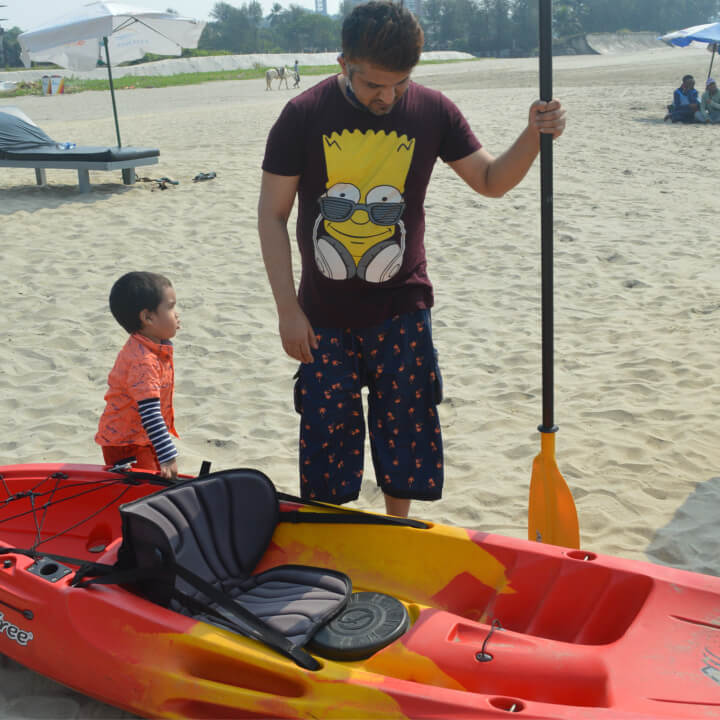The effect of alcohol is more hazardous on the water compared to the land. This is because when you are on the water, the effect of alcohol is accelerated by motion, vibration, engine noise, etc. This is why you have to be extra cautious while drinking on the boat.
Key Takeaways
- Turbulent waters and waves tend to make the head spin more and you will feel too dizzy
- If the lighting is not sufficient or very dim, it can create illumination and increase the effect of the alcohol
- Strong and turbulent winds only add to the impairment and have serious repercussions while drinking alcohol
- Alcohol tampers with the cerebellum of the human brain and it can affect your sense of balance and judgment
What Are The Reasons Behind It?
It is true that accidents can happen anytime but you can’t be irresponsible under this pretext.
Besides being drunk, there are other factors that come into play. They are-
1. Condition of the water- turbulent waters and waves tend to make your head spin, and you feel too dizzy
2. Illumination- if the lighting is not sufficient or very dim, it can hamper the driver’s vision.
3. Glare- if the glare reflecting from the surface of the water is too bright or the sunlight is too strong, then it blinds the operator and the passengers
4. Winds and rains- strong and turbulent winds only add to the impairment and have serious repercussions
5. Seasickness- if you have an existing phobia of seas and water, then in a drunken state, it only gets worse
What Does Alcohol Do?
Alcohol tampers with your cerebellum, one of the three main parts of the human brain. The cerebellum is responsible for your muscle movements by sending out nerve impulses to the various parts of the body to initiate an action. Cerebellum also coordinates your voluntary muscles, that is, your sense of balance and judgment. Losing track of these two factors is what is quintessentially responsible for accidents. It dulls the reflexes too.
Alcohol molecules bind to specific receptor cells in the brain like glutamate and GABA, thus resulting in the improper functioning of nerve signals. This affects your ability for reasoning and logic.
Precautions For Boaters
Boating is a challenge in itself as waters are an unfamiliar terrain and require a lot of practice and a great sense of judgment and balance. So if you are looking to party or go on a weekend getaway, then it is always advisable to not drive the boat yourself and hire a well-reputed boat driver.
Yet, if you insist on driving the boat yourself because it pumps your adrenaline, then either refrain from drinking or have a very limited quantity. And obviously, you must take all the gears with you.
If you find the weather conditions getting harsh, then get inside a cabin. Try to avoid being on the deck. Don’t venture out alone. Avoid late-night parties and wrap up by 10 pm. Always have a backup electricity source in case of power outages and a backup driver.
It is no fun being reckless and risking your life as well as the lives of your friends and family. So work hard and party harder, but not at the cost of safety.
References:
- https://www.uscgboating.org/recreational-boaters/boating-under-the-influence.php
- https://bringmethenews.com/life/drinking-boat-make-feel-drunker
- https://www.desperatesailors.com/how-does-the-effect-of-alcohol-while-boating-compare-to-its-effect-while-on-land/

Rockey is a kayaking enthusiast who has been kayaking with a local group for the last five years. He loves using kayaks while out on outings on the water or camping when the friends want to have a BBQ party somewhere on the bank of a local lake. More About James R Rockey at About Page Here: Authors
Based on his experiences with the different types of kayaks, he is sharing his opinion about kayaking tricks and required gears so that a beginner can get started right away.
Find his team on Twitter here. Happy reading!
